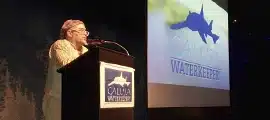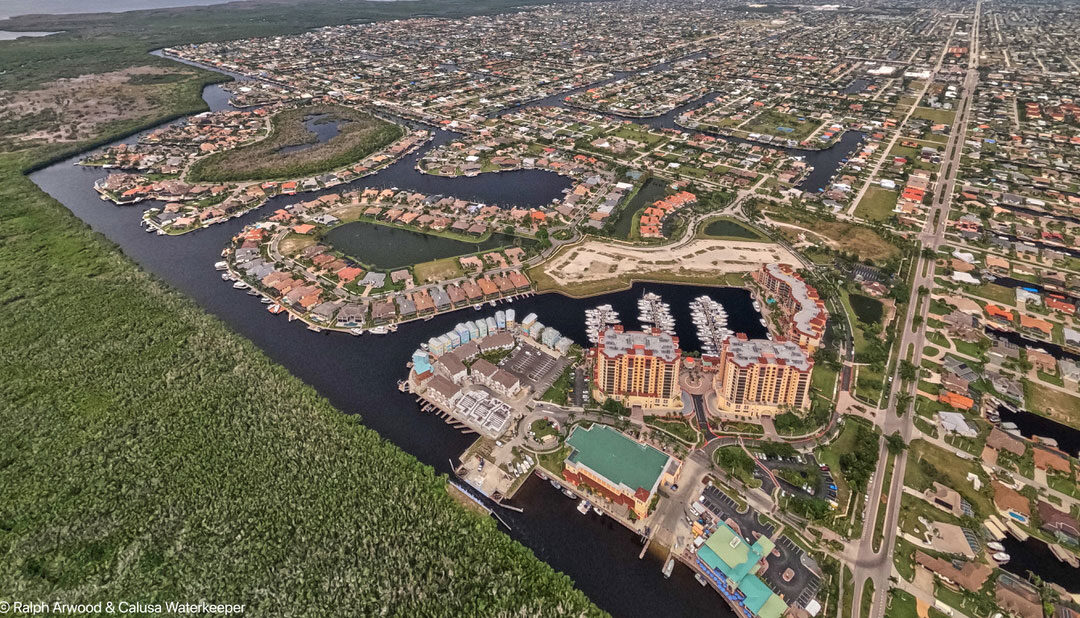Originally published in the News-Press by Chad Gillis on August 22, 2024
Some environmental groups and residents fought the city over the issue, saying removing the lock will impact endangered species like the smalltooth sawfish, which breed and live near the lock.
“The overwhelming evidence presented in court demonstrated that the city’s actions were in the best interest of environmental preservation and public safety,” Mullen said.
But Calusa Waterkeeper Codty Pierce compared the situation to the old Ceitus canal area along Matlacha Pass, which is now suffering from a large fish kill due to a variety of water quality issues.
Waters there are suffering from excess sediment, an algae bloom and low dissolved oxygen levels.
Environmental group worry lock removal will harm Caloosahatchee
Pierce and others said the removal of the Ceitus Canal is a major contributor to those problems, and that he expects similar outcomes when the Chiquita Lock is removed.
“In 2009, they removed the Ceitus lock for the northern spreader system and we’ve seen drastic changes to Matlacha since,” Pierce said. “So, from that perspective, removing that lock is a concern.”
Pierce said runoff from Cape Coral has polluted waters at Matlacha and that he thinks the Caloosahatchee River will see changes, too.
“We may see water changes in a year, but this is more about the long term,” he said. “But the Ceitus lock needs to be the example here, and 2009 was the last time Matlacha met water quality standards, and it’s an aquatic preserve.”
Karl Deigert with the Matlacha Civic Association said the city has used taxpayer dollars to harm the Caloosahatchee River and the Cape.
“It’s more tax dollars to destroy the environment for profit and greed,” Deigert said. “The regulatory agencies protect nothing but the interests of municipal and corporate economic actors that seek permits to make their illegal actions legal. It’s a system of staged environmental destruction.”
Continue Reading

























